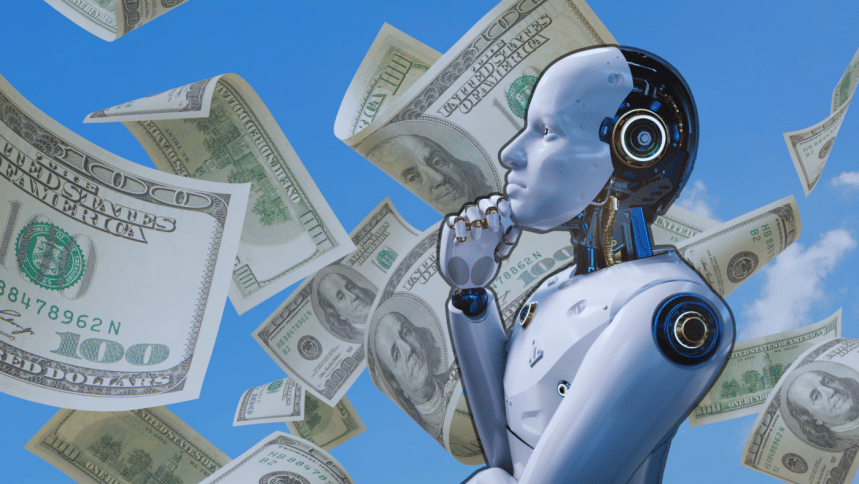Analysts worry about AI's profitability: report

The rapid rise of artificial intelligence (AI), particularly in the realm of generative AI, is raising concerns about profitability and sustainability despite the overwhelming enthusiasm from investors and industry leaders, according to a recent report by AFP.
OpenAI, the maker of ChatGPT, recently closed a staggering $6.6 billion funding round, propelling its valuation to $157 billion. According to analysts interviewed by AFP, this immense investment has ignited a debate: are we witnessing a genuine AI revolution, or is it just another tech bubble waiting to burst?
AI: bubble or breakthrough?
Rob Enderle, a tech analyst from the Enderle Group, warns that the current AI hype may exceed the technology's maturity, with companies racing to adopt AI without fully understanding its capabilities. "We're in a bubble where vendors are telling everyone they must adopt AI now," Enderle said.
He predicts this chaotic phase could last another two to three years before the market stabilises, but he also cautions against expecting breakthroughs in general artificial intelligence (AGI), which he believes won't arrive until at least 2030, as per the report.
Despite these uncertainties, tech giants like Amazon, Google, Meta, and Microsoft are heavily investing in AI, even as the technology currently costs more than it generates. OpenAI, for example, is expected to lose $5 billion this year on $3.7 billion in sales.
High costs, uncertain returns
Generative AI's operational costs, mainly due to data centres and computing power, are straining profitability. As stated in the report, Emarketer's Grace Harmon feels that OpenAI is banking on future growth, predicting revenues could soar to $100 billion by 2029. Many investors fear underinvesting, driven by a "fear of missing out", even though short-term returns are uncertain.
Dan Ives of Wedbush Securities, however, is optimistic, likening AI's rise to the iPhone's transformative impact. Others, like Carolina Milanesi of Creative Strategies, believe AI will eventually become integral to daily life, though the path to profitability remains unclear.
As the AI landscape continues to evolve at breakneck speed, investors are eagerly hopping on board without fully understanding where the journey might lead. Enderle warns that such speculative behaviour "typically ends badly", but the long-term prospects of AI remain too alluring for Wall Street to ignore.
The future of AI is uncertain, but promising
Whether we are in an AI bubble or witnessing the dawn of an AI revolution, one thing is clear: generative AI is shaping the future of technology, and its impact will be felt across industries.
However, it's still too early to determine which companies will emerge as the long-term winners. For now, the focus remains on innovation, competition, and a shared fear of missing out on the next great technological frontier.

 For all latest news, follow The Daily Star's Google News channel.
For all latest news, follow The Daily Star's Google News channel. 








Comments